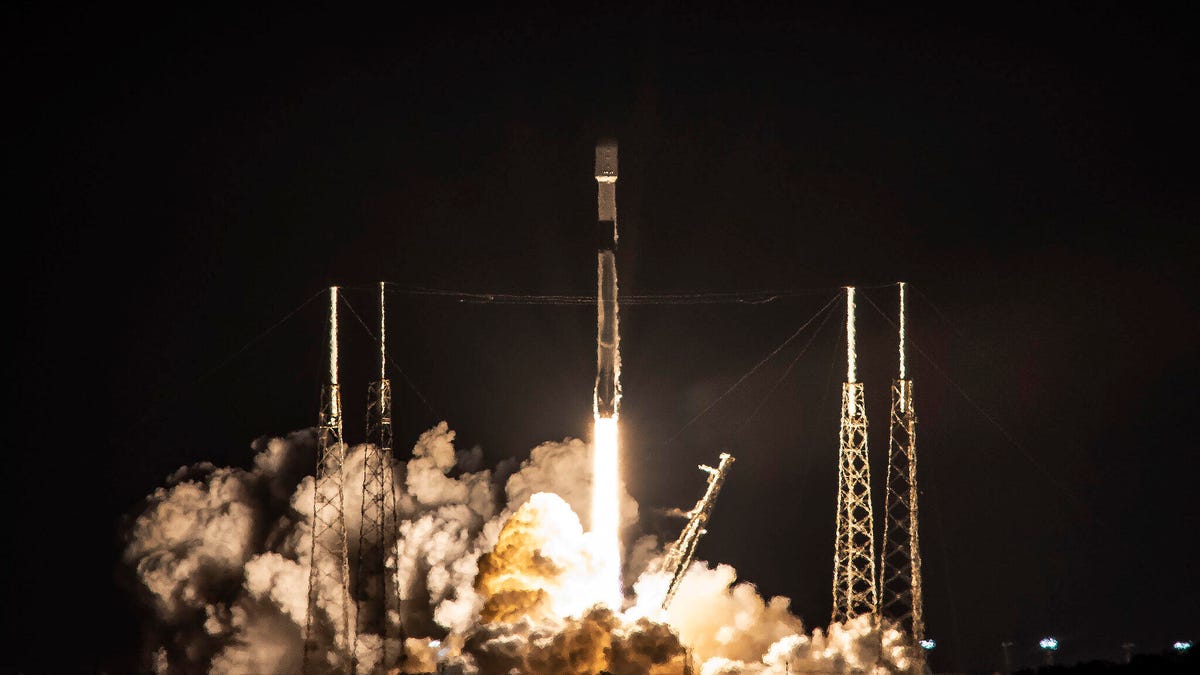A historic SpaceX Falcon 9 booster takes flight again
The rocket that gave human spaceflight from US soil a big boost has launched and landed again.

A Falcon 9 rocket boosts a batch of Starlink satellites.
The Falcon 9 first stage that punched NASA astronauts beyond the unceasing clutches of Earth's gravity for the first time in SpaceX history has completed its latest assignment.
The booster, which sent astronauts Bob Behnken and Doug Hurley to the International Space Station in May 2020 as part of the Demo-2 mission, launched 60 of the company's Starlink broadband satellites early Thursday.
This was the booster's first flight since Demo-2, which brought human spaceflight back to US shores for the first time since the end of the Space Shuttle program in 2011, but was also its sixth overall and its second Starlink mission. Both halves of the nose cone, or fairing, that shielded the new group of routers on their journey up through the atmosphere had also flown on previous missions.
The launch was originally set for Tuesday evening, but was delayed and finally got off the ground from Cape Canaveral Space Force Station in Florida at 3:13 a.m. ET (12:13 a.m. PT) Thursday.
Falcon 9’s first stage has landed on the Just Read the Instructions droneship pic.twitter.com/fI2VvU3kWO
— SpaceX (@SpaceX) March 11, 2021
The booster also managed its sixth career landing eight minutes later in the Atlantic Ocean on the droneship Just Read The Instructions.
This marks the sixth Starlink mission of 2021 so far, with the seventh set to follow this Sunday.
Follow CNET's 2021 Space Calendar to stay up to date with all the latest space news this year. You can even add it to your own Google Calendar.

